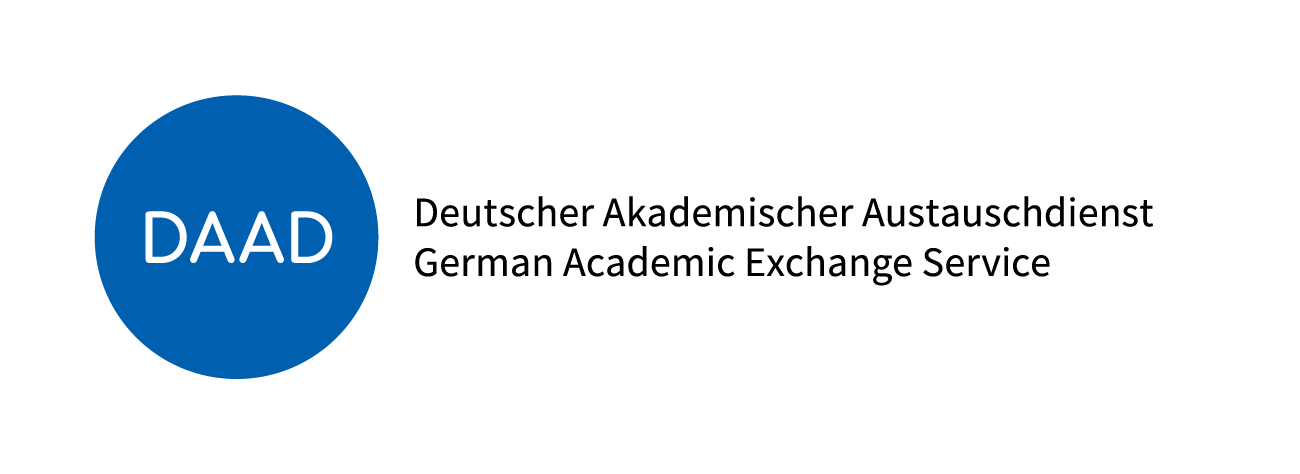First week of KNU-FAU Summer School 2023
As part of the DAAD project “Science Diplomacy in Active Conflicts”, the KNU-FAU Summer School “Democracy Building in Times of War” started on July 24, 2023, at the Friedrich-Alexander-Universität Erlangen-Nürnberg. Among the participants of the Summer School are 16 students from 3 universities: Taras Shevchenko National University of Kyiv (Ukraine), Friedrich-Alexander-Universität Erlangen-Nürnberg (Germany), and Istanbul Technical University (Turkey). Students come from a wide range of disciplines – International Law, International Relations, International Communication, International Business, Law, Political Science, Development Economics and International Studies, Biology and Medicine, Mechanics and Mathematics, Urban and Regional Planning, Architecture.
At the beginning of the programme, the participants were welcomed by FAU Vice President Outreach, Prof. Dr. Kathrin M. Möslein, and KNU Vice Rector for Education (International Affairs), Prof. Dr. Kseniia Smyrnova, who wished the participants every success in interdisciplinary research and dialogue with highly experienced experts.
Taking into account that the participants represent different cultures, on the first day they received information about cultural peculiarities and how to overcome communication barriers from Kerstin Sommer, Deputy Head of FAU International Affairs Department, who has extensive experience in intercultural communication, and Dr. Mariia Parkhomenko, Kateryna Chebotarova and Kyrylo Boldyrev, who described Ukrainian cultural peculiarities.
During the first week, students attended the following lectures by FAU and KNU professors:
- Common Values of the EU and Europeanization from Abroad by Prof. Dr. Kseniia Smyrnova (KNU, Chair of Comparative and European Law);
- State Building After an Active Conflict by Dr. Johannes Jüde (FAU, Institute of Political Science);
- Ukraine’s Monetary and Exchange-Rate Policy During and After the War by Prof. Dr. Jürgen Kähler (FAU, Institute of Economics);
- European Anti-Corruption Mechanisms as a Key Factor of Ukraine´s Candidacy Status for EU Membership by Dr. Olena Sviatun (KNU, Chair of the Comparative and European Law);
- Civil Society and Peace-Building by Prof. Dr. Marco Bünte (FAU, Institute of Political Science); as well as students had the opportunity to discuss the role of Ukrainian NGOs in times of war with Kateryna Rashevska (legal expert at the Regional Centre for Human Rights, Ukraine) and received expert opinions on transitional justice;
- Education System in Times of Crises by Dr. Anastasiia Panchuk (FAU, International Affairs Department).
- Geopolitics by Alexander Stiller (FAU)
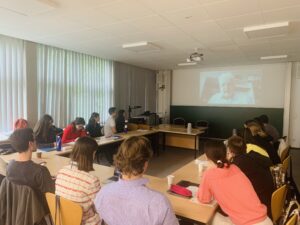
The Summer School participants also had the opportunity to listen to a lecture by Dr. Mykola Gnatovsky, Judge of the European Court of Human Rights in respect of Ukraine, on the role of the European Court of Human Rights in strengthening democracy, human rights and the rule of law in Ukraine. After the lecture, participants had two rounds of questions and answers with Dr. Gnatovsky.
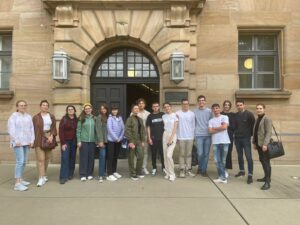
The students and the Summer School Organising Committee are very grateful to the experts for their time, their willingness to share their knowledge and for the open discussions.
The students ended the first week with a cultural programme in Nuremberg, which included guided tours to the Memorium Nuremberg Trials and the Germanisches Nationalmuseum. Participants were given information about German history and the Nuremberg Trials, as well as visited the media installation in historic Courtroom 600 as part of the permanent exhibition.
An important component of the Summer School is a group work activity. The students have already chosen their topics and started preparing to write an essay that will be the scientific outcome of their participation in the two-week Summer School.
Further information:
Kateryna Futorianska, Coordinator of the DAAD project “Science Diplomacy in Active Conflicts”
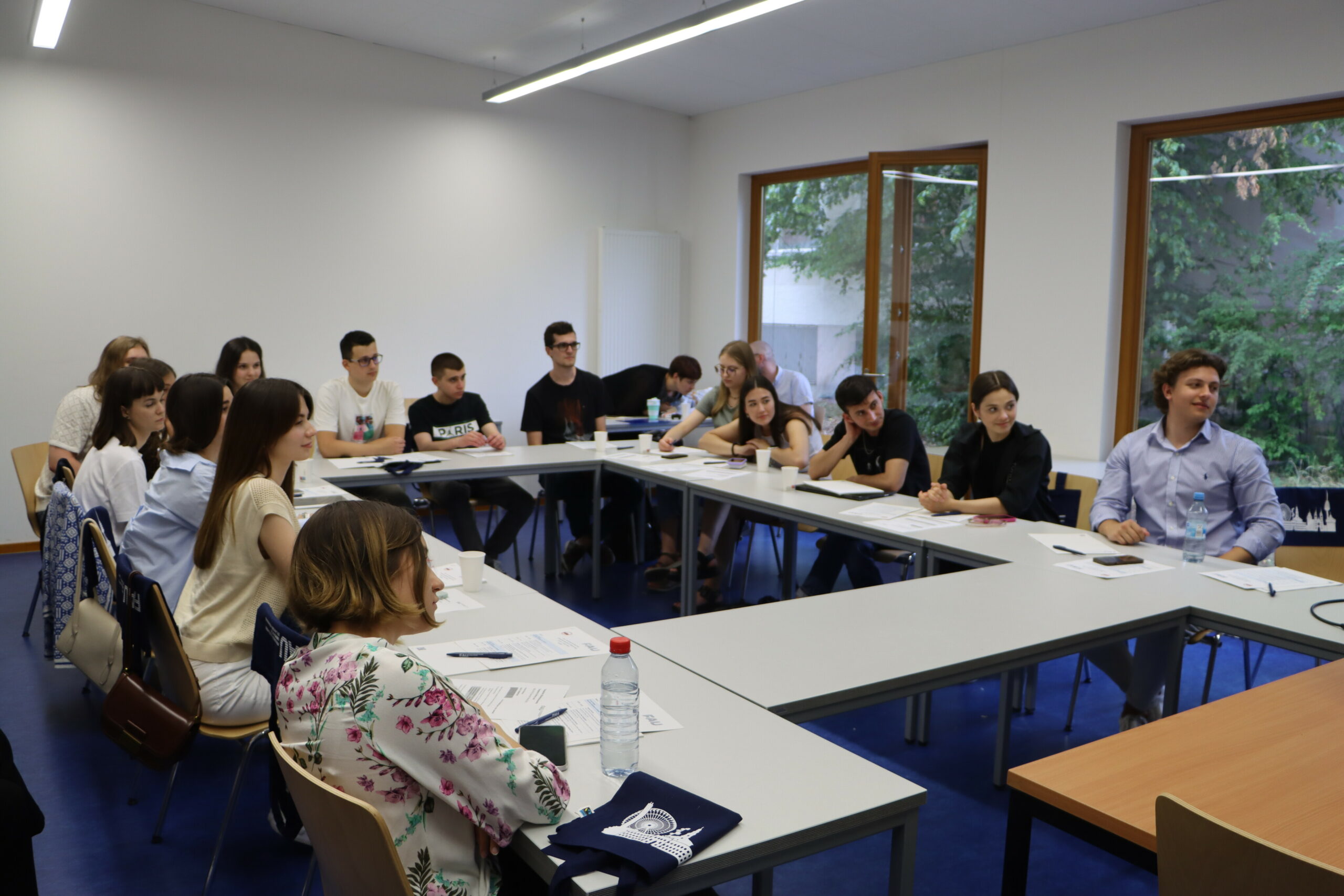
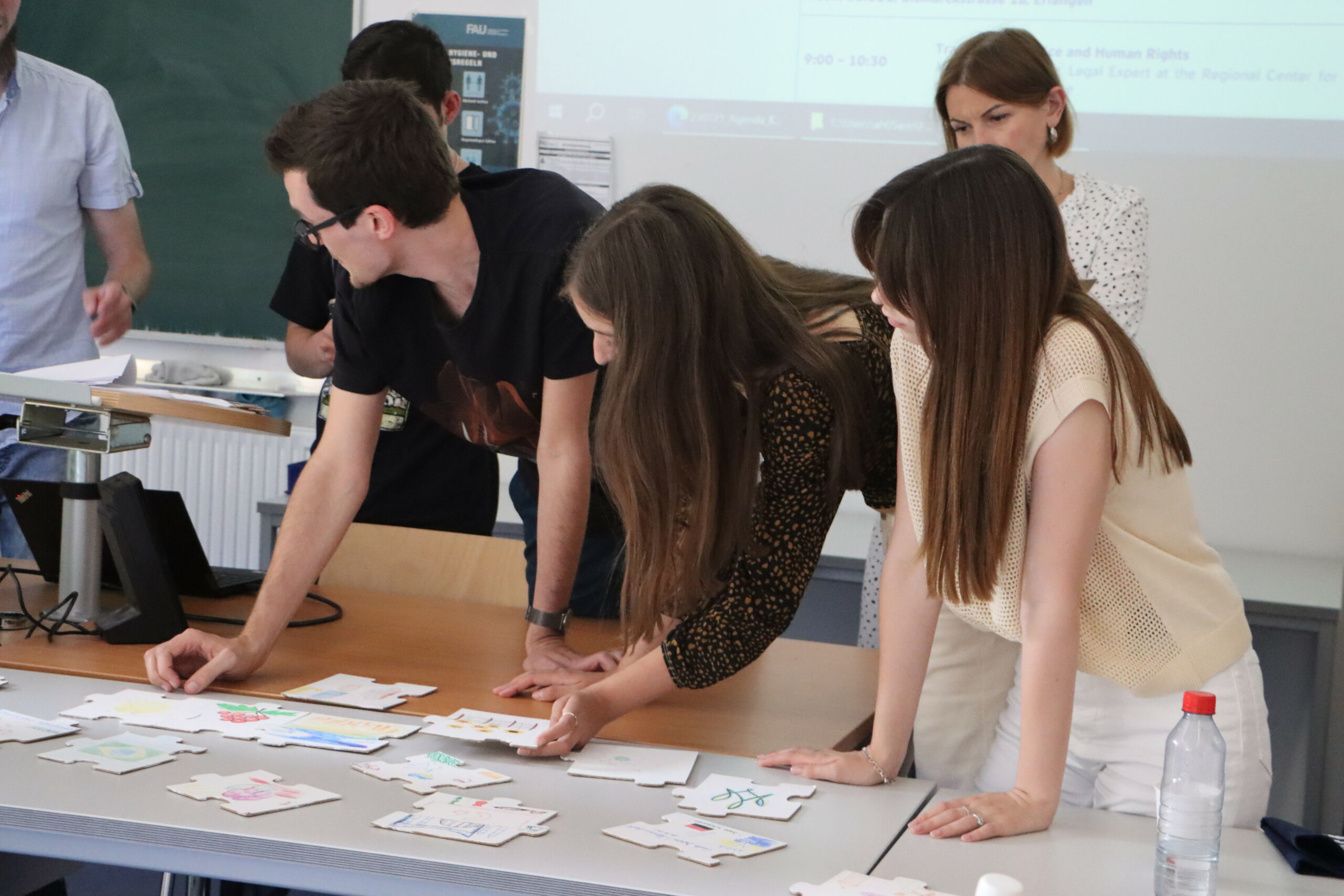
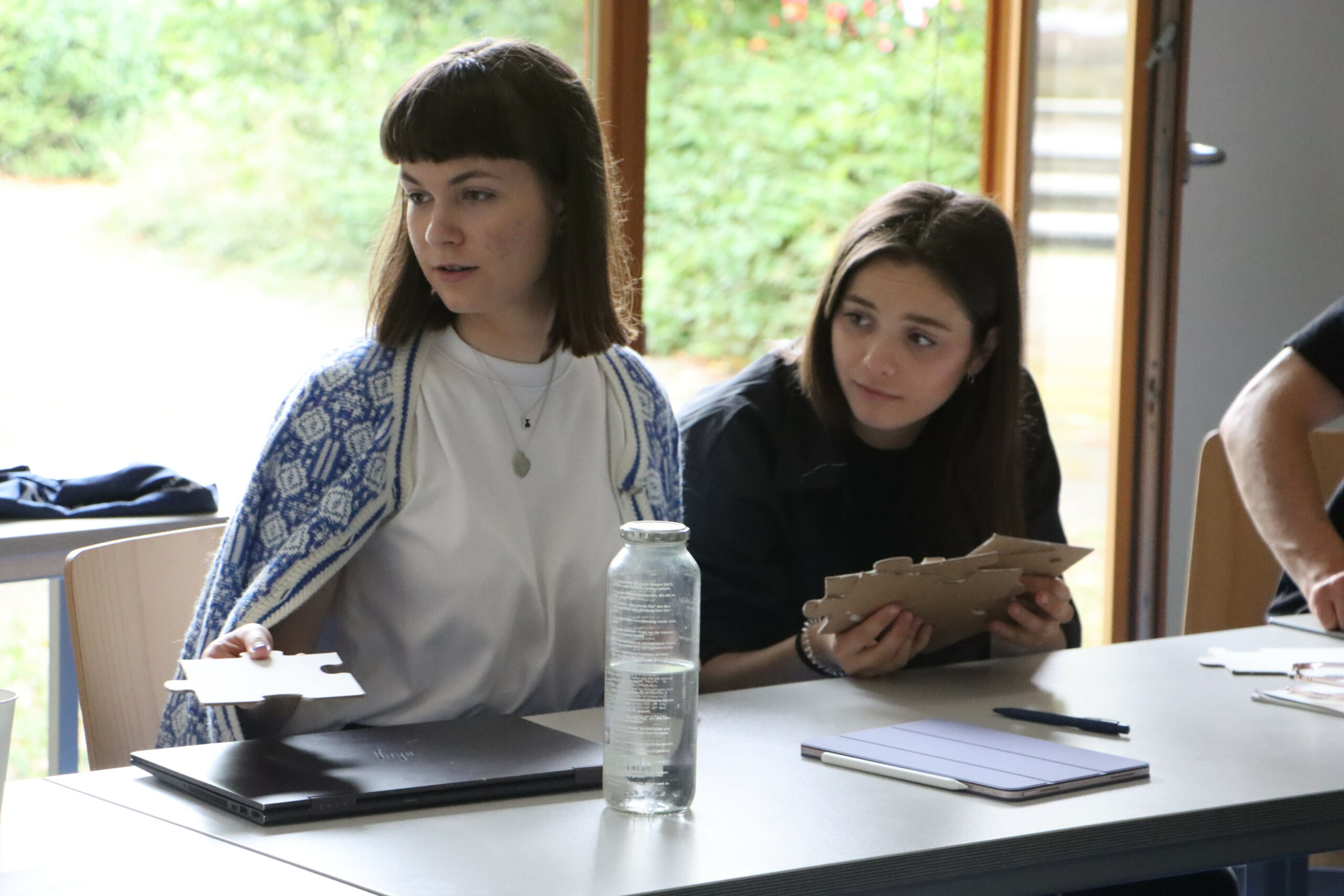
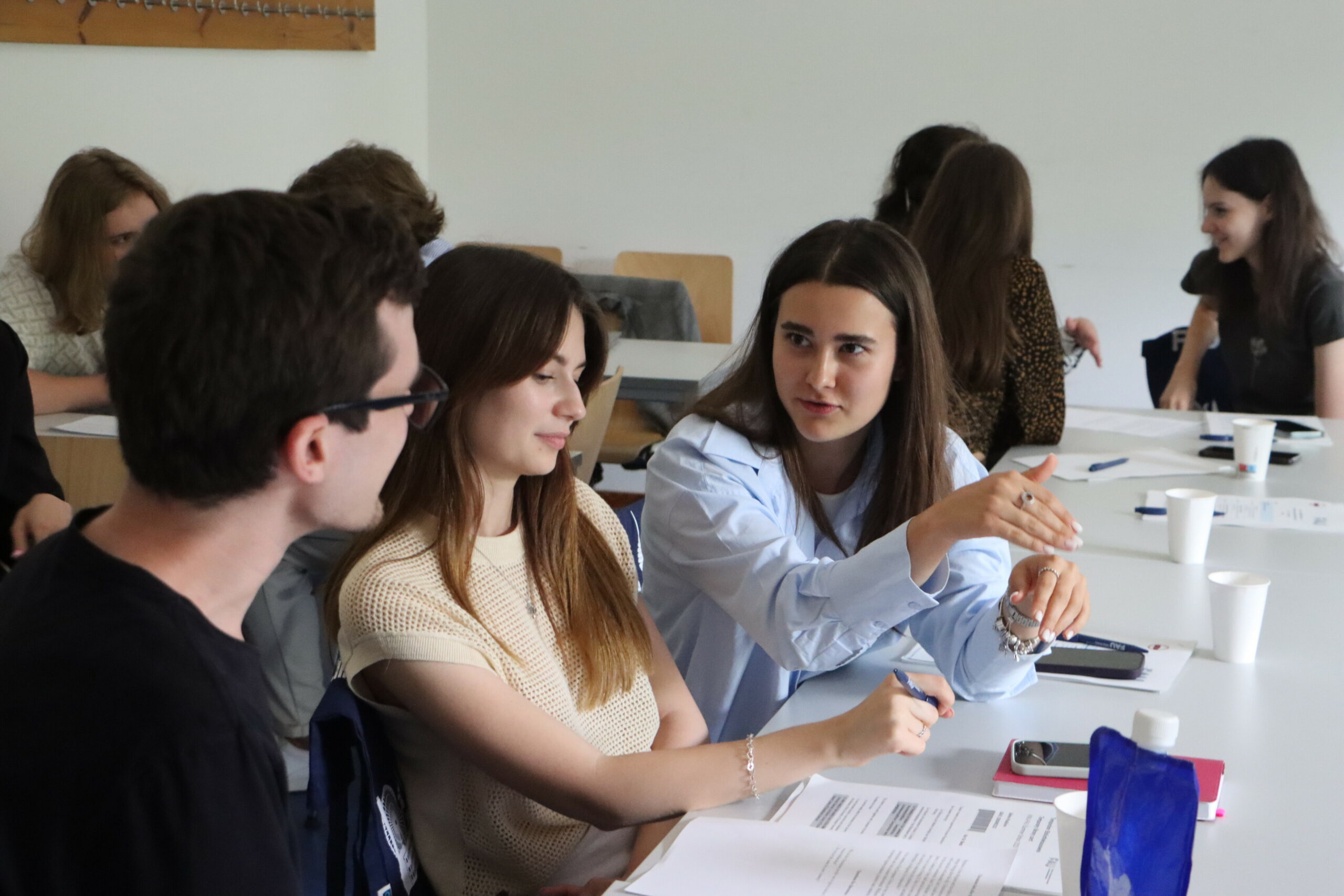
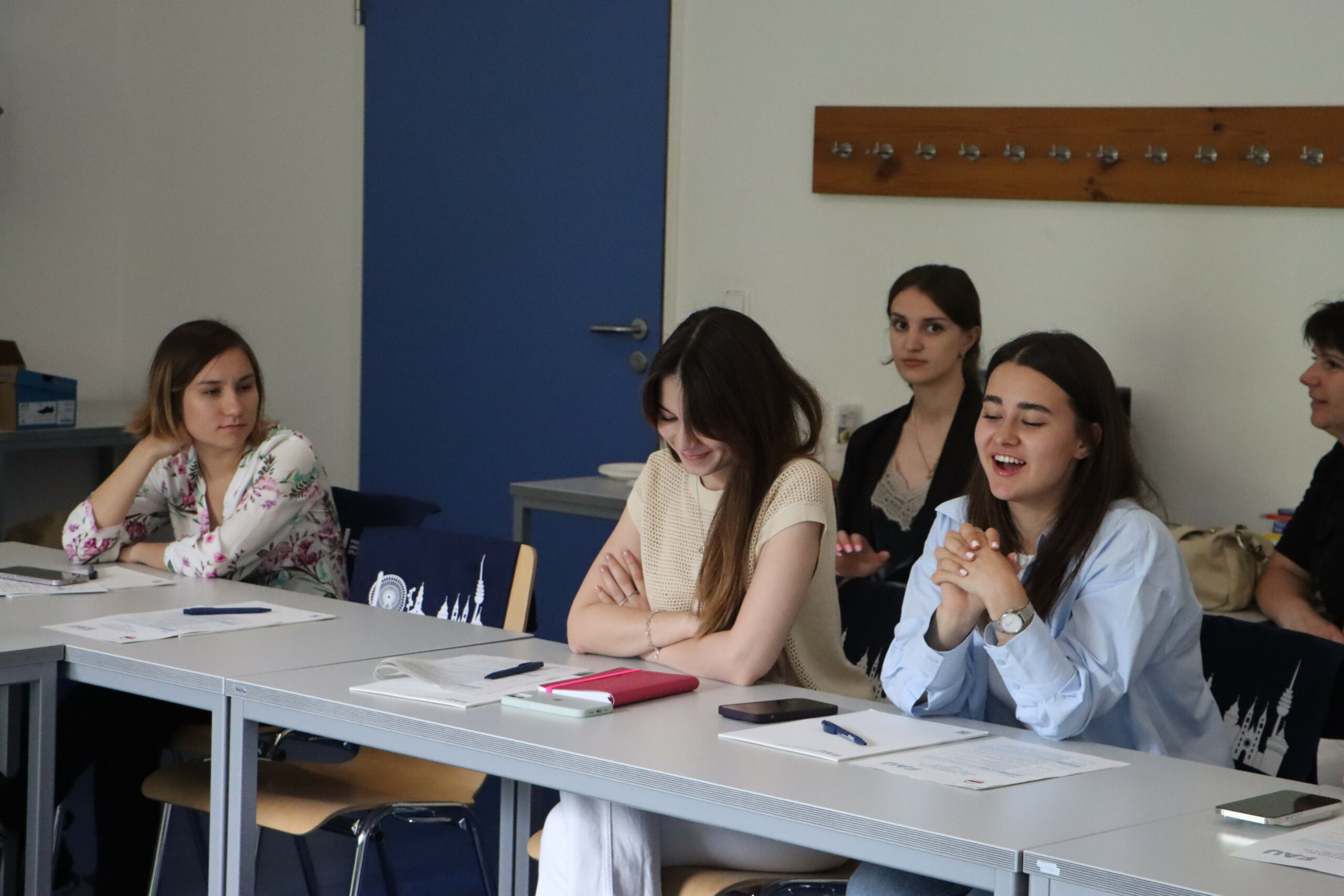
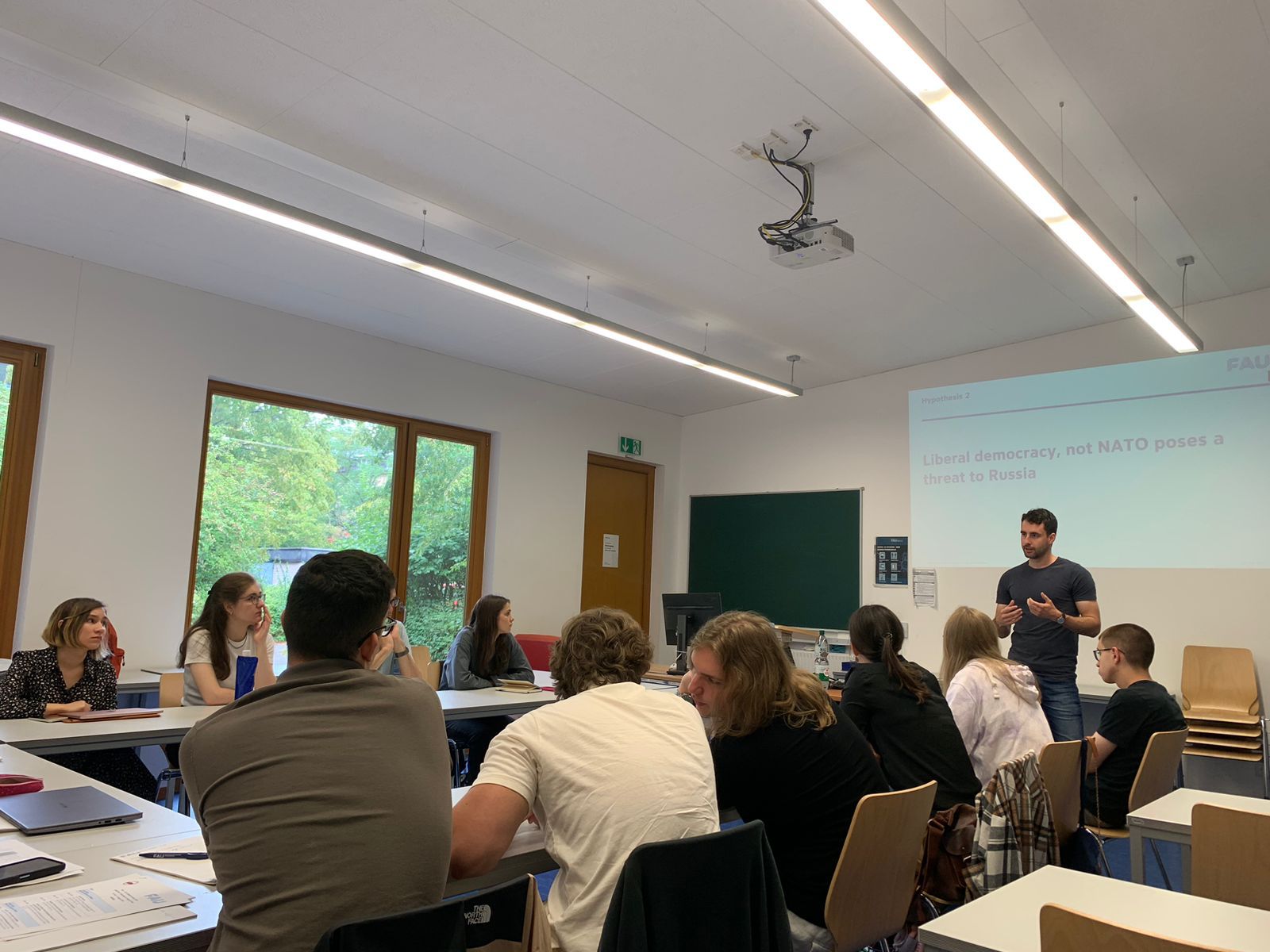
Project funded by DAAD.
